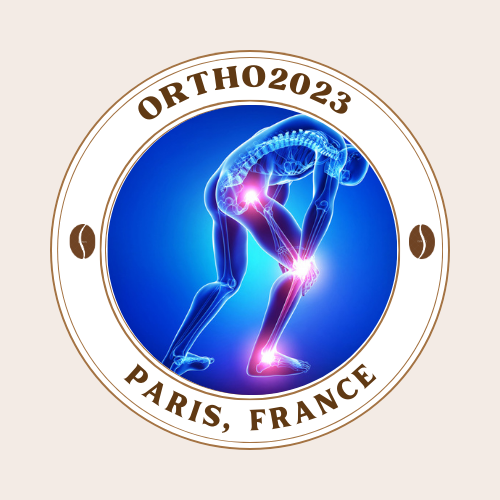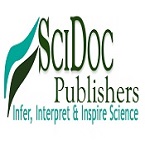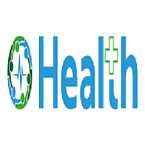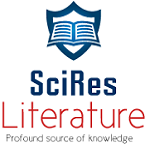Renowned Speakers
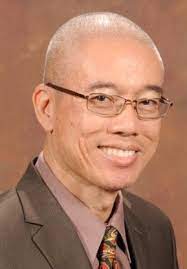
Raymond Chong
Augusta University USA

Areerat Suputtitada
Chulalongkorn University Thailand
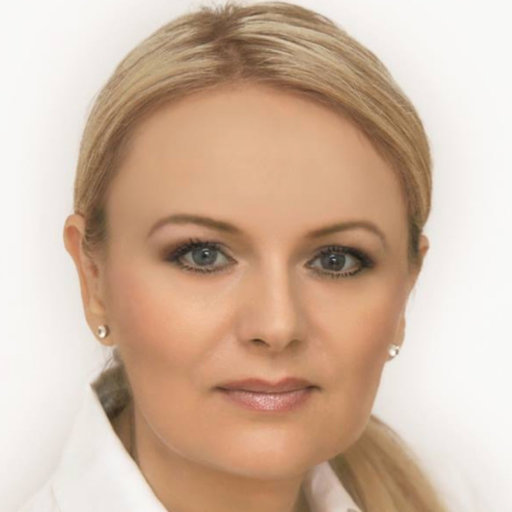
Michaela Tomanová
Rehabilitation Clinic Czech Republic
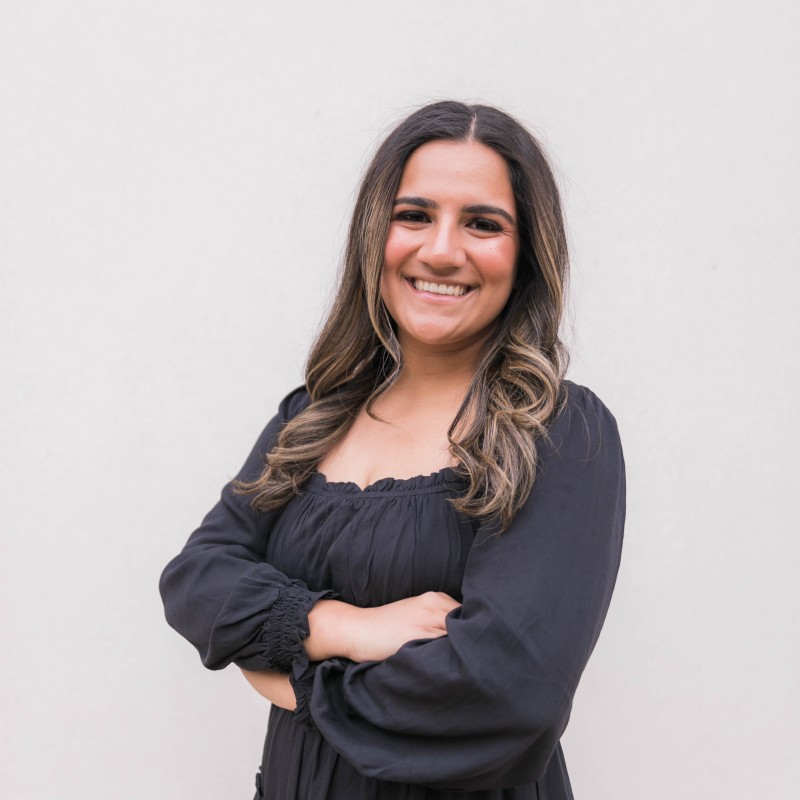
Negin Khakpour
University of Paris France
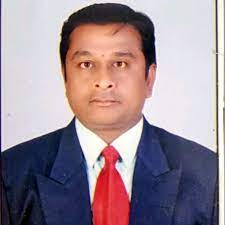
S Purna Chandra Shekhar,
Maharashtra University of Health Sciences India

Jiyao Chou
Hong Kong Baptist University China
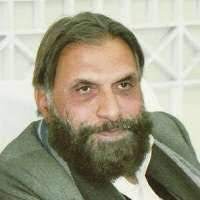
Mahboob ur Rahman
Pakistan Physiotherapy Association Pakistan
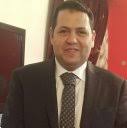
Ahmed Sonbol
International Medical Center Saudi Arabia
Recommended Global Orthopedics Webinars & Conferences
Europe & UK
Asia Pacific & Middle East
Canada
ortho2023
About Conference
Ortho2023 Invites all the participants by presenting the latest Scientific Improvement and technologies in the field of Orthopedics, Rheumatology, and Musculoskeletal Disorders. Ortho2023 welcomes all the eminent researchers and scholars around the globe to be part of the most awaited event of 2023 “17th Global Summit on Orthopedics and Physiotherapy” Scheduled to be held on NOVEMBER 16-17, 2023 in Paris, France.
We welcome all the Honourable Orthopedic Surgeons, Rheumatologists and other related specialist, Medical Students, Research Scholars, Young Researchers, Associations, Health Professionals, and collaborators to our 17th Global Summit on Orthopedics and Physiotherapy.
Ortho2023, provide an international platform to all the Speakers, Delegates, Surgeons, Research scholars, Orthopedic Physicians, Orthopedic Surgeons, Rheumatologists, Orthopedic and Rheumatology Research Fellows Orthopedic and Rheumatology Faculty, Directors and Chair Persons, Health Care Professionals, Orthopedic and Rheumatology Medical Students, Orthopedics Medical Colleges, Universities, Orthopedics Devices Designers, Industrial Professionals, Physical Therapists, Business Entrepreneurs, Training Institutes, Software making, Manufacturing Medical Devices Companies, Orthopedics, and Rheumatology Research Institutes, Orthopedics and Rheumatology Societies & Associations to gather in as one as a Medical professional to share their new technologies, Innovations, and Researches.
Sessions and Tracks
Track 1 : Arthroplasty
Arthroplasty, also known as joint replacement surgery, is a highly advanced medical procedure designed to restore mobility, alleviate pain, and improve the overall quality of life for individuals suffering from severe joint conditions. This innovative surgical technique has revolutionized the field of orthopedics, offering hope and relief to millions of people worldwide.Arthroplasty involves the removal of damaged or deteriorated joint components and their replacement with prosthetic implants made of durable materials like metal, plastic, or ceramic. This surgical intervention is most commonly performed on weight-bearing joints such as the hip, knee, and shoulder, although it can also be applied to other joints like the elbow, ankle, and wrist.
The primary goal of arthroplasty is to relieve chronic pain and enhance joint function in patients who have endured years of discomfort due to conditions such as osteoarthritis, rheumatoid arthritis, avascular necrosis, or traumatic injuries. This procedure offers a renewed lease on life for those who have been limited by pain and mobility issues, enabling them to regain their independence and engage in activities they may have thought were out of reach.
Track 2 : Exercise and Sports Medicine
Exercise and Sports Medicine is a dynamic and multifaceted field dedicated to enhancing the health, performance, and overall well-being of individuals through physical activity and sports. This discipline encompasses a wide range of expertise, including medical professionals, physiologists, nutritionists, physical therapists, and trainers, all working collaboratively to optimize human movement and athletic potential. Exercise and Sports Medicine specialists focus on preventing injuries in athletes and individuals engaging in physical activities. They design tailored injury prevention programs and provide effective rehabilitation strategies to expedite recovery.
Whether you're an elite athlete or someone looking to improve their fitness level, Exercise and Sports Medicine professionals offer evidence-based training and conditioning techniques to boost physical performance and achieve peak results. Proper nutrition plays a pivotal role in athletic success and overall health. Experts in this field provide dietary guidance tailored to individual needs, helping athletes and active individuals optimize their energy levels and recovery. Understanding how the body responds to exercise is crucial. Sports physiologists delve into the science of human performance, studying factors like cardiovascular fitness, metabolism, and biomechanics to improve training regimens.
Track 3 : Joint Disorders
Joint disorders, also known as musculoskeletal conditions, encompass a diverse group of medical conditions that affect the joints of the human body. These disorders can range from common issues like osteoarthritis and rheumatoid arthritis to more rare conditions such as ankylosing spondylitis and gout. Joint disorders can significantly impact a person's mobility, comfort, and overall quality of life, making understanding and effective management of these conditions of paramount importance.
The treatment of joint disorders varies depending on the specific condition, its severity, and the patient's individual needs. Common treatment approaches include medication (pain relievers, anti-inflammatories), physical therapy, lifestyle modifications (such as weight management and exercise), and in some cases, surgical interventions. Ongoing research into joint disorders is essential for improving treatment options and outcomes. Scientific advancements in areas like regenerative medicine and biologics hold promise for the future.
Track 4 : Ethical Considerations in Orthopedics
Orthopedics is not only about mending bones and restoring mobility; it also carries ethical responsibilities that profoundly impact patient care and outcomes. In this thought-provoking session, we delve into the complex realm of ethical considerations in orthopedics, examining the moral dilemmas faced by orthopedic professionals and the critical decisions they make in the best interests of their patients. Explore the principles of patient autonomy and informed consent in orthopedic practice. Understand the importance of patients' rights to make decisions about their own care and how orthopedic professionals can uphold these rights.
Delve into the ethical considerations related to innovative surgical techniques and experimental procedures in orthopedics. Examine the balance between offering potential benefits to patients and the ethical obligations of safety and informed consent. Explore how adopting a patient-centered approach can help address ethical concerns in orthopedics. Learn strategies for effective communication, shared decision-making, and building trust with patients.
Track 5 : Methicillin-Resistant Staphylococcus aureus (MRSA)
Methicillin-resistant Staphylococcus aureus (MRSA) infection is caused by a type of staph bacteria that's become resistant to many of the antibiotics used to treat ordinary staph infections.Most MRSA infections occur in people who've been in hospitals or other health care settings, such as nursing homes and dialysis centers. When it occurs in these settings, it's known as health care-associated MRSA (HA-MRSA). HA-MRSA infections usually are associated with invasive procedures or devices, such as surgeries, intravenous tubing or artificial joints.
HA-MRSA can spread by health care workers touching people with unclean hands or people touching unclean surfaces.Another type of MRSA infection has occurred in the wider community — among healthy people. This form, community-associated MRSA (CA-MRSA), often begins as a painful skin boil. It's usually spread by skin-to-skin contact. At-risk populations include groups such as high school wrestlers, child care workers and people who live in crowded conditions.
Track 6 : Spinal Disorders
Spinal disorders encompass a broad spectrum of conditions affecting the spine, from common issues like back pain to more complex and debilitating conditions such as scoliosis, herniated discs, and spinal stenosis. This informative session invites you to explore the intricacies of spinal disorders, shedding light on their causes, symptoms, diagnosis, treatment options, and the transformative impact they can have on individuals' lives. Explore a wide range of spinal disorders, including degenerative conditions, congenital abnormalities, traumatic injuries, and inflammatory diseases. Understand the diverse causes and risk factors associated with each.
Gain insights into surgical procedures used to treat spinal disorders, such as spinal fusion, discectomy, laminectomy, and minimally invasive techniques. Understand when surgery may be recommended. Explore various pain management techniques, including medications, injections, and alternative therapies, aimed at improving the quality of life for individuals with spinal disorders.
Track 7 : Palliative Care
Palliative care is a specialized and compassionate approach to healthcare that focuses on improving the quality of life for individuals living with serious illnesses, such as cancer, heart disease, dementia, or advanced-stage organ failure. This enlightening session invites you to explore the profound impact of palliative care, the principles that guide it, and how it enhances the physical, emotional, and spiritual well-being of patients and their families. Understand the range of illnesses and situations for which palliative care is beneficial, including advanced cancer, heart failure, chronic obstructive pulmonary disease (COPD), and end-stage renal disease.
Delve into the various symptoms that can accompany serious illnesses, such as pain, shortness of breath, nausea, and anxiety. Learn how palliative care addresses these symptoms to improve patient comfort.Examine the unique considerations and challenges of providing palliative care to pediatric patients and their families. Understand how palliative care can improve the lives of young patients facing life-limiting conditions.
Track 8 : Arthritis and Rheumatoid Arthritis
Rheumatoid arthritis is a chronic inflammatory disorder that can affect more than just your joints. In some people, the condition can damage a wide variety of body systems, including the skin, eyes, lungs, heart and blood vesselsAn autoimmune disorder, rheumatoid arthritis occurs when your immune system mistakenly attacks your own body's tissues.Unlike the wear-and-tear damage of osteoarthritis, rheumatoid arthritis affects the lining of your joints, causing a painful swelling that can eventually result in bone erosion and joint deformity.The inflammation associated with rheumatoid arthritis is what can damage other parts of the body as well. While new types of medications have improved treatment options dramatically, severe rheumatoid arthritis can still cause physical disabilities.
Track 9 : Fractures
Fractures, commonly known as broken bones, are among the most prevalent and often painful injuries people can experience. This informative session takes you on a journey through the world of fractures, offering valuable insights into their types, causes, symptoms, diagnosis, treatment options, and the remarkable capacity of the human body to heal and recover. Explore the diverse range of fractures, including simple fractures, compound fractures, stress fractures, and comminuted fractures. Learn how each type is identified and treated.
Explore the various treatment options available for fractures, from non-surgical methods like casting and splinting to surgical interventions such as open reduction and internal fixation (ORIF).Hear inspiring stories from individuals who have experienced fractures and successfully recovered. Gain insights into their journeys to healing and rehabilitation. Begin by unraveling the basics of fractures, examining the structure of bones, and understanding how fractures occur.
Track 10 : Contemporary physiotherapy practice
Physiotherapy is a scientific and evidence-based health profession that takes a 'whole person' approach to improving and maintaining wellbeing. Physiotherapists help people affected by injury, illness, or disability, using a range of interventions such as advice, education, exercise, and manual therapy and electro physical agents.Contemporary Physiotherapy Practice at Lincoln aims to enhance currently qualified Physiotherapist's knowledge and skills through various teaching and learning methods to equip students for current clinical practice. This includes exploring topics such as clinical reasoning and decision making, pathoanatomic and physiology, interventions, research methodology and project management applicable to physiotherapy practice.
With an emphasis on applied theory and practical development, the programme aims to enhance both practical and research skills through critical engagement with evidence-based strategies for clinical practice.Students will also be encouraged to undertake analytical reflections based on their clinical practice to direct their own personal and professional development. Students will receive support from academics who have specialist knowledge and experience in the field.
Track 11: Orthopedic Radiology
Orthopedic radiology is currently also called musculoskeletal radiology. Modalities currently utilized in evaluating orthopedic radiology now include plain films, nuclear medicine, ultrasound, CAT scans, MRI, and PET scans. Over the past 50 years orthopedic radiology has matured extensively. These new tools as described above have enabled the radiologist to have a far better understanding not only of the bones, but the adjacent soft tissues which were only nominally imaged in the past.
As a consequence, the radiologist can far more conclusively evaluate underlying pathology. For example, in the not too distant past when the patient injured the elbow, x-rays were obtained. The x-rays were included AP, lateral and oblique view. If no fractures were demonstrated, the radiologist would look for a positive fat pad sign which would indicate an effusion. Currently, to search for a post-traumatic effusion, the use of plain films alone would not be considered appropriate. Far more sophisticated tools including a CAT scan or an MRI if clinically warranted would add considerable more information and make suggested diagnoses readily apparent.
Track 12 : Tele Health and Physiotheraphy
The fusion of telehealth and physiotherapy is driving a revolution in patient-centered care. This session delves into the dynamic world of remote physiotherapy services, exploring how telehealth platforms connect patients and physiotherapists, transcending geographical boundaries. Discover how telehealth enables physiotherapists to conduct comprehensive assessments, evaluate movement, and diagnose musculoskeletal issues from afar. Understand how telehealth enhances patient education, enabling individuals to better comprehend their conditions and actively participate in their recovery.
Discuss how telehealth widens access to physiotherapy services, particularly in underserved or remote areas, and for patients with mobility limitations. Navigate the legal and ethical aspects of telehealth in physiotherapy, including licensure, informed consent, and privacy regulations. Explore the integration of wearable devices and digital health tools to enhance remote physiotherapy sessions.
Track 13 : Respiratory Physiotherapy
Respiratory physiotherapy, a specialized branch of healthcare, focuses on improving the well-being of individuals with respiratory conditions. This session illuminates the crucial role that respiratory physiotherapy plays in enhancing lung function, managing respiratory disorders, and promoting a better quality of life. Explore common respiratory conditions like asthma, chronic obstructive pulmonary disease (COPD), and bronchiectasis. Understand the challenges individuals face in managing these conditions.
Delve into a range of therapeutic techniques used in respiratory physiotherapy, including chest physiotherapy, breathing exercises, airway clearance techniques, and the use of respiratory devices. Hear inspiring stories of individuals who have benefited from respiratory physiotherapy and have experienced improved lung health and a better quality of life.
Track 14 : Cardiopulmonary rehabilitation
Cardiopulmonary rehabilitation is a comprehensive, multidisciplinary program designed to enhance the physical and emotional well-being of individuals with heart and lung conditions. This specialized form of rehabilitation focuses on improving the overall cardiovascular and respiratory health of patients, enabling them to lead healthier and more active lives. Cardiopulmonary rehabilitation programs are tailored to the unique needs of each patient and typically involve a team of healthcare professionals, including cardiologists, pulmonologists, physiotherapists, nurses, and dietitians. The primary goal is to optimize the patient's physical function, reduce symptoms, and enhance their quality of life.
Individualized exercise plans that include aerobic conditioning, strength training, and flexibility exercises. These activities are closely monitored to ensure safety and effectiveness.Emotional and psychological support is provided to help patients cope with the emotional challenges often associated with heart and lung conditions. This may include stress management, anxiety reduction, and strategies for improving mental well-being. Cardiopulmonary rehabilitation is typically recommended for individuals with a range of conditions, including coronary artery disease, heart failure, chronic obstructive pulmonary disease (COPD), and post-cardiac or post-pulmonary surgery patients.
Track 15 : Neurological Rehabitaion
Neurological rehabilitation is a transformative journey that empowers individuals with neurological conditions to regain independence and enhance their quality of life. In this enlightening session, we explore the world of neurological rehabilitation, delving into the comprehensive approaches and specialized therapies that address conditions such as stroke, traumatic brain injury, multiple sclerosis, and spinal cord injury. Discover adaptive techniques and strategies that help individuals regain mobility, improve cognitive function, and enhance communication skills. Discover the role of assistive devices and emerging technologies in improving the quality of life for individuals with neurological conditions.
Emotional counseling and coping strategies to address the psychological impact of neurological conditions on patients and their families. Equipping patients and their families with knowledge about their condition and strategies for long-term management. Neurological rehabilitation is a journey towards rebuilding lives and achieving the highest level of independence and quality of life possible. It not only focuses on physical recovery but also on nurturing the emotional and psychological well-being of patients, offering them the tools and support they need to face the future with confidence and optimism. Through personalized care and a commitment to ongoing improvement, neurological rehabilitation plays a pivotal role in helping individuals with neurological conditions regain control over their lives.
Track 16 : Lymphedema Management
Lymphedema, a chronic condition characterized by the accumulation of lymphatic fluid, poses unique challenges to individuals' quality of life. This session, "Lymphedema Management," offers an in-depth exploration of this condition, its causes, and, most importantly, effective management strategies. This session aims to empower healthcare professionals, patients, and caregivers with the knowledge and tools needed to effectively manage lymphedema, mitigate its impact on daily life, and improve overall well-being. Join us in exploring the world of lymphedema management and discover how it can restore balance and comfort to those affected by this condition.
Dive into the comprehensive decongestive therapy (CDT) process, comprising complete decongestive therapy (CDT) and maintenance phases, and understand its role in long-term management. Stay informed about the latest research and innovations in lymphedema management and emerging therapies on the horizon. Recognize the emotional and psychological aspects of living with lymphedema and the importance of psychosocial support for patients and their families. Learn about non-invasive approaches to lymphedema management, including manual lymphatic drainage, compression therapy, and skin care to alleviate discomfort and swelling.
Track 17 : Kinesiology Taping Techniques
Kinesiology taping has emerged as a versatile and widely utilized therapeutic approach in the realm of physical therapy and sports medicine. This session, "Kinesiology Taping Techniques," invites participants to delve into the art and science of applying elastic therapeutic tape to alleviate pain, enhance muscle function, and promote the body's natural healing mechanisms.
Explore the origins and principles of kinesiology taping, including its adhesive properties and elasticity, which mimic the human skin. Discover how kinesiology tape influences muscle activity, joint stability, and the lymphatic system, aiding in pain reduction and tissue recovery.Learn a variety of taping techniques for different conditions, including muscle strains, ligament injuries, edema, and postural correction. Gain insights from real-world cases where kinesiology taping has played a pivotal role in rehabilitation and recovery.
Market Analysis
Ortho2023 Market was valued at USD 40.6 billion in 2020 and is estimated to grow at a CAGR of over 5% between 2021 and 2027. Orthopedic Conferences devices are extensively used for anchoring damaged bones in internal fixation surgery that consists of implementation of implants for treating damaged bone. Increasing instances of accidents and sports injuries across the world are fuelling the market growth. Growth in number of orthopedic procedures is accelerating the acceptance of orthopedic devices. Furthermore, technological developments are fostering the demand for orthopedic devices.
Orthopedic devices are the devices that are used for managing and preventing injuries and deformities of the musculoskeletal system. These devices facilitate replacement of bones or missing joints and provide support to the fractured bone. They are composed of a combination of metals such as stainless steels and titanium alloys to enhance strength, whereas the outer layer of plastic functions as artificial cartilage.
Recent technological advancements will fuel the orthopedic devices market revenue:
Continuous technological developments in orthopedic conferences devices, innovations in design and efficiency have facilitated the use and convenience of the devices in the industry. Extensive research and development in the equipment used for hip, spinal, and knee replacement have introduced innovative offerings in the market such as patient-specific, personalized implants and 3D printed implants. Novel automation technologies coupled with robotics are being deployed in the business operations, further helping to deliver high quality devices. Additionally, the emergence of robotics in orthopedic surgeries is less invasive and offer high precision, further facilitating shorter stays in the hospitals and rapid recover.
Increasing incidences of road accidents in North America region will stimulate the regional growth:
U.S. dominated the North America orthopedic devices market and captured over 94% of revenue share in 2020 owing to the well-developed healthcare infrastructure and rise in number of orthopedic surgeries. Increase in the number of amputations and road accidents in the U.S. are anticipated to amplify the market for these devices in the country. As per the Insurance Institute for Highway Safety (IIHS) and Highway Loss Data Institute (HLDI), in 2019, there were 33,244 fatal motor vehicle accidents in the U.S. resulting in 36,096 deaths. Growing incidence of accidents in the country will increase the adoption rate of orthopedic devices.
Past Conference Report
With the success of Orthopedics Conferences, Conference Series Ltd is proud to host upcoming CME Accredited “16th Global Summit on Orthopedics and Physiotherapy” during December 05-06, 2022 in Rome, Italy. Orthopedics Summit-2022 is designed on the theme: “Challenging Opportunities in the field of Orthopedics and Physiotherapy” that focuses to share novel approaches related to Orthopedics field and exploring the challenges concerning excellence in Osteoporosis research and advancements.
The Orthopedics Summit-2022 invites participants, renowned speakers and eminent delegates across the globe to attend the conference and share their valuable presentation and galvanize the scientific community. For scientific people from all over the globe focused on learning about emerging technologies in all fields of Orthopedics and their complications in the latest application, this is the best opportunity to reach the largest conglomeration of participants from the scientific community and research.
The Development council of the "Orthopedics Summit-2022" is planning for invigorating and informational gathering and conduct workshops on emerging technologies in the field of Orthopedics, Rheumatology, Osteoporosis, advancement of themes, banner showcases and different projects for members from all over the world.
To Collaborate Scientific Professionals around the World
Conference Date November 16-17, 2023
For Sponsors & Exhibitors
Speaker Opportunity
Useful Links
Past Conference Report
Supported By
All accepted abstracts will be published in respective Conference Series International Journals.
Abstracts will be provided with Digital Object Identifier by
